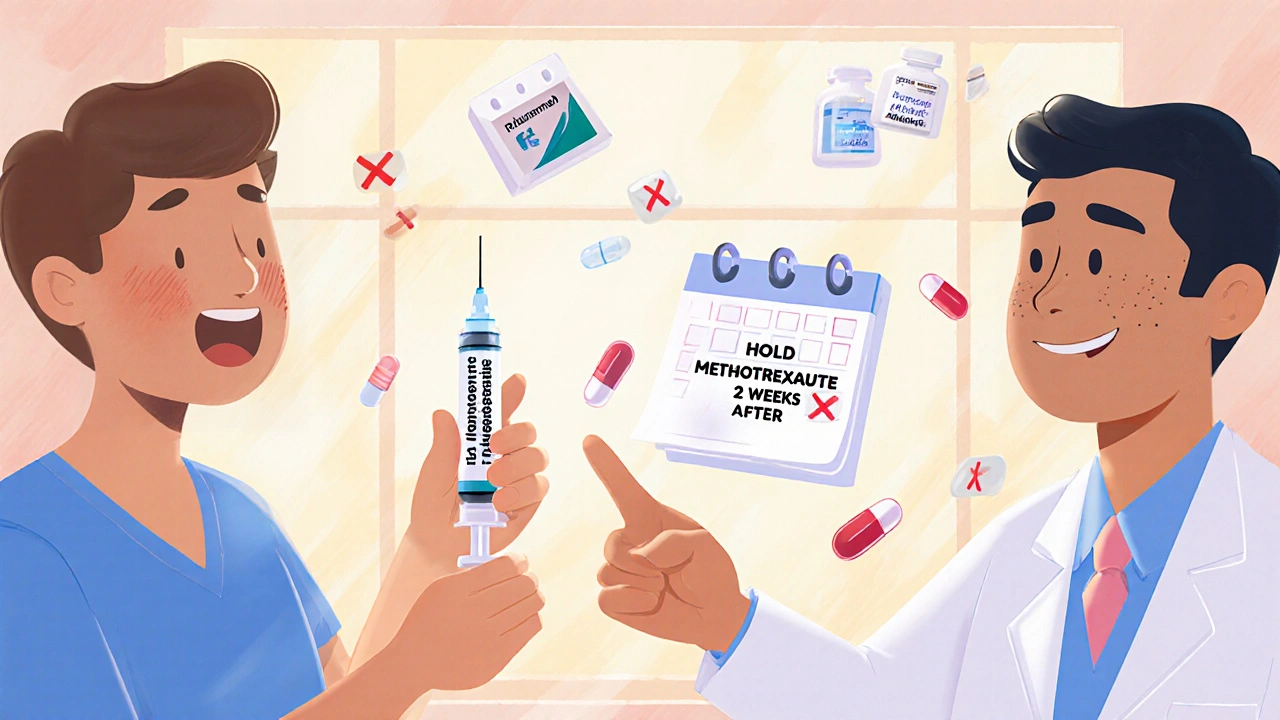Vaccination with Immunosuppressants: What You Need to Know
When you're taking immunosuppressants, drugs that lower your body’s ability to fight off infections and inflammation. Also known as anti-rejection meds, they’re essential for people with autoimmune diseases, organ transplants, or severe inflammatory conditions. But they also make vaccines less effective—and sometimes riskier. If you’re on one of these drugs, your immune system isn’t working at full strength. That means your body might not build the right defense after a shot, even if you get all the doses. It’s not that vaccines are dangerous for you—they usually aren’t—but they might not work as well as they do for someone with a normal immune system.
This isn’t just about flu shots or COVID boosters. vaccination with immunosuppressants, the process of receiving vaccines while taking drugs that dampen immune activity affects everything from pneumonia vaccines to shingles shots. Some vaccines, like live ones (e.g., MMR, varicella), are off-limits because they contain weakened viruses that could cause illness in someone with a suppressed immune system. Others, like inactivated or mRNA shots, are safe but may need extra doses or timing adjustments. Your doctor might recommend checking your antibody levels after vaccination to see if your body responded. And if you’re due for a transplant or starting a new drug like mycophenolate mofetil, a common immunosuppressant used after organ transplants and for autoimmune disorders, timing your vaccines before treatment starts can make a big difference.
Many men on these drugs worry about skipping vaccines entirely—but that’s riskier than getting them right. You’re more likely to get seriously sick from the flu, COVID, or pneumococcus if you’re not protected. The goal isn’t to avoid shots, but to plan them. Some people need vaccines months before starting immunosuppressants. Others need extra doses or higher-strength versions. And if you’re on steroids like prednisone, a corticosteroid often used to control inflammation and immune response, even short-term use can change how your body reacts to a vaccine. It’s not one-size-fits-all. Your medication, dose, health condition, and age all matter.
There’s also the risk of delayed reactions. If you’re on drugs that suppress your immune system, side effects from vaccines might show up differently—or be harder to spot. A fever might be your only sign something’s wrong, but if your body doesn’t raise a normal fever, you could miss the warning. That’s why tracking symptoms after each shot matters. Keep a log: fatigue, rash, joint pain, or unusual swelling. These aren’t always bad, but they’re clues your doctor needs.
Below, you’ll find real, practical advice from men who’ve walked this path. We’ve gathered posts that break down which vaccines are safe, when to get them, how to talk to your doctor about timing, and what to do if you’ve already been vaccinated while on these drugs. No guesswork. No fluff. Just clear, tested info to help you stay protected without putting your health at risk.
Timing vaccines correctly while on immunosuppressants is critical for protection. Learn exact guidelines for methotrexate, rituximab, TNF inhibitors, and more-and what to do when the advice conflicts.

